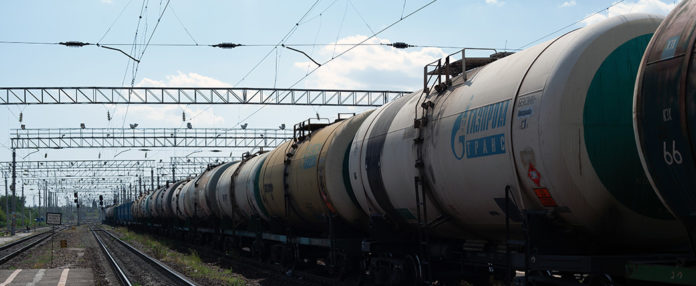Russia exported less base oil in June and July, compared to February, as shipments to Europe dwindled under the barrage of sanctions by the United States and Europ, according to a report by Argus.
At the same time, internal demand dropped because of the economic slowdown caused by the Ukrainian War.
In July, Russia exported 69,400 tons of base oils, 7% less than in June and 32% less compared to the February shipments, according to the Aug. 24 report by Argus, a consulting and media organization based in London.
Before the start of the war in late February and the ensuing severe sanctions against Russia imposed by the West, the main export destinations for the Russian base oils were the Netherlands, Latvia, Turkey, Ukraine and Singapore. Market insiders say that Russian base oil flows are now pivoting towards the more competitive Asia market.
“In Asia, this segment is characterized by big competition, and because these are products with added value, the possibility for Russia to sell discounted base oils, like it is doing it with the crude oil, is limited,” Evgeny Mironyuk, a stock market expert, told Lube Report.
Argus found that the shipments through the Baltic ports – traditional export channels for the Russian base oils and lubricants – amounted to 16,400 tons in July, 51% less in comparison to the February shipments.
However, the firm also found that the internal shipments to the domestic customers by rail increased to 123,200 tons in July, up 18% from June and 21% more than in February.
“Russia is facing a base oil supply glut that drives the prices of some of the domestic products, such as industrial oils, down,” the report states.
According to a Russia Ministry of Energy official, the country’s base oil exports decreased by 7% since the start of the year, the business daily Vedomosti reported on Monday. The official said that although the state might consider measures to support the domestic base oil and lubricant exporters and marketers if they asked for help, so far no such requests have been received.
Meanwhile, the imports of lubricant additives to Russia increased to around 5,600 tons in August, from 5,100 tons in July. The largest chunk of these shipments or 94%, are coming from China, according to a monthly report by B2X, a Moscow-based consultancy. However, in August the imports of additives were down 7% year-on-year, B2X found. The consultancy’s report is based on customs data.
